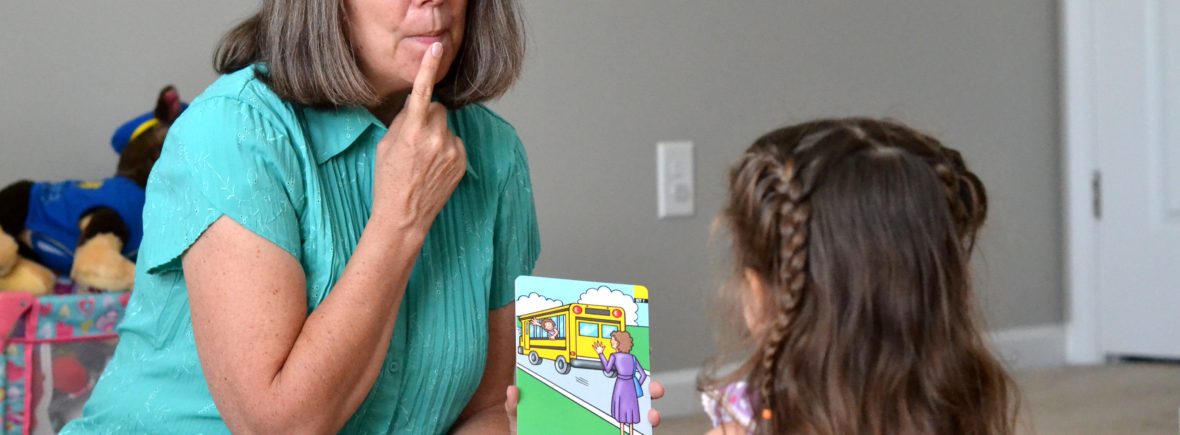Most children make some mistakes as they learn to say new words. A speech sound disorder occurs when mistakes continue past a certain age. Every sound has a different range of ages when the child should make the sound correctly. Speech sound disorders include problems with articulation (making sounds) and phonological processes (sound patterns).
Articulation Disorder
An articulation disorder involves problems making sounds, including using substitutions, omissions, adding or changing a sound. Young children often make speech errors. For instance, many children sound like they are making a “w” sound for an “r” or an “l” sound (e.g., “Wobbie” for “Robbie” or “wove” for “love”). ‘The child may have an articulation disorder if these errors continue past the expected age.
Articulation development follows an orderly sequence and developmental error patterns are to be expected at certain ages. Increased coordination of the muscles in the lips, tongue, jaw, and soft palate are required for later developing sounds such as r, th and l.
The following lists the general age range in which the correct production of these sounds should appear:
- Before age 2: vowels sounds
- After age 2,0 months: /m/, /n/, /h/, /w/, /p/, /b/
- After age 3,0 months: /f/, /k/, /g/, /t/, /d/
- After age 4,0 months: /ng/, /y/
- After age 5,0 months: voiced ‘th’ (this), ‘sh’, ‘ch’, /l/, /v/, j
- After age 6,0 months: /s/, /r/, /z/, ‘zh’, /s/ blends, /r/ blends, vowelized /r/, voiceless ‘th’ (thing), /l/ blends
What causes speech sound disorders?
Many speech sound disorders occur without a known cause. A child may not learn how to produce sounds correctly or may not learn the rules of speech sounds on their own. These children may have a problem with speech development, which does not always mean that they will simply outgrow it by themselves. Many children do develop speech sounds over time but those who do not often need the services of a speech language pathologist to learn correct speech sounds.
Some speech sound errors can result from physical problems, such as:
- developmental disorders (e.g. Autism)
- genetic syndromes (e.g., Down syndrome)
- hearing loss
- illness
- neurological disorders (e.g., cerebral palsy)
Children who experience frequent ear infections should have their hearing checked as this can have a negative impact on articulation.
Speaking with an accent and/or dialect is not a speech sound disorder

